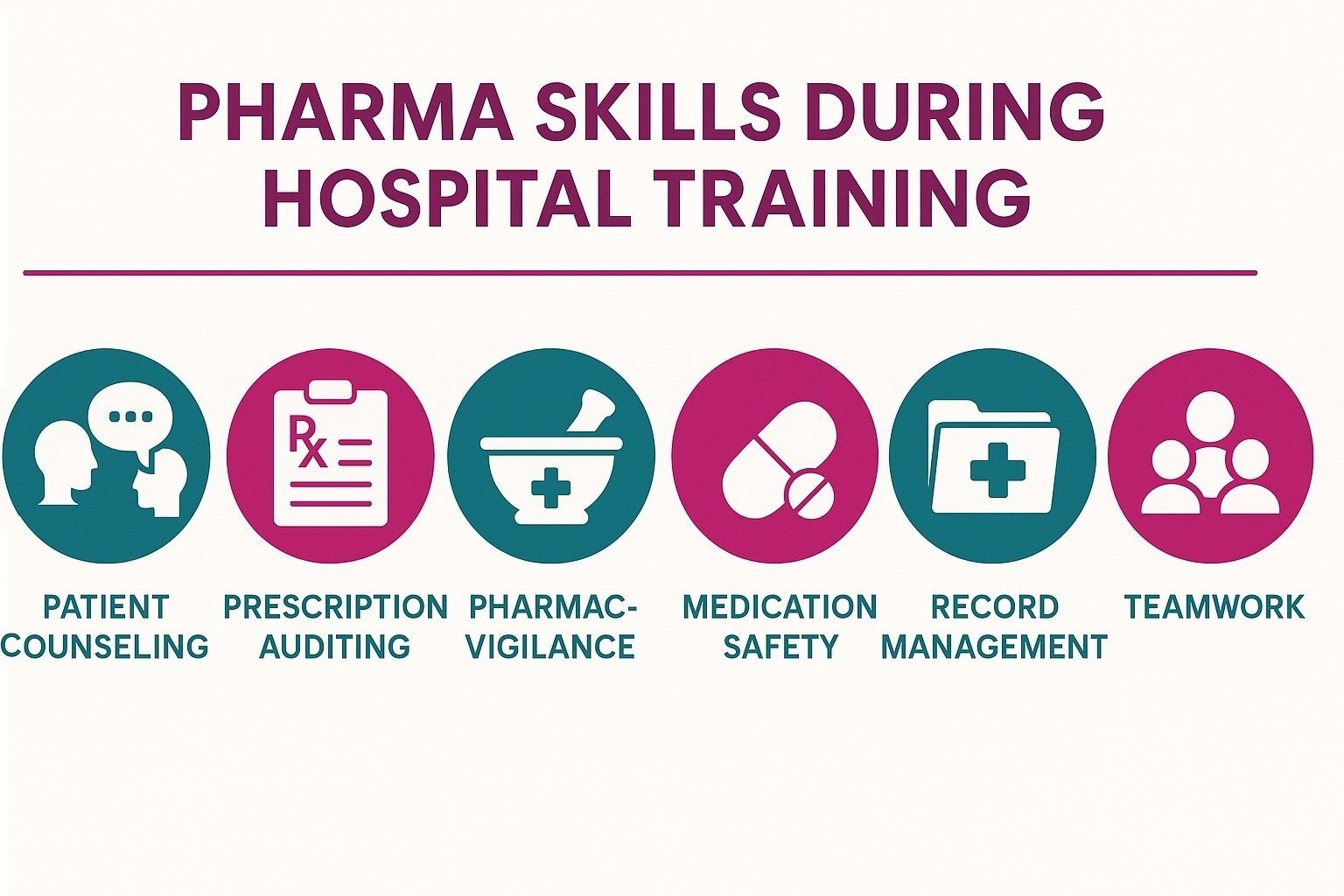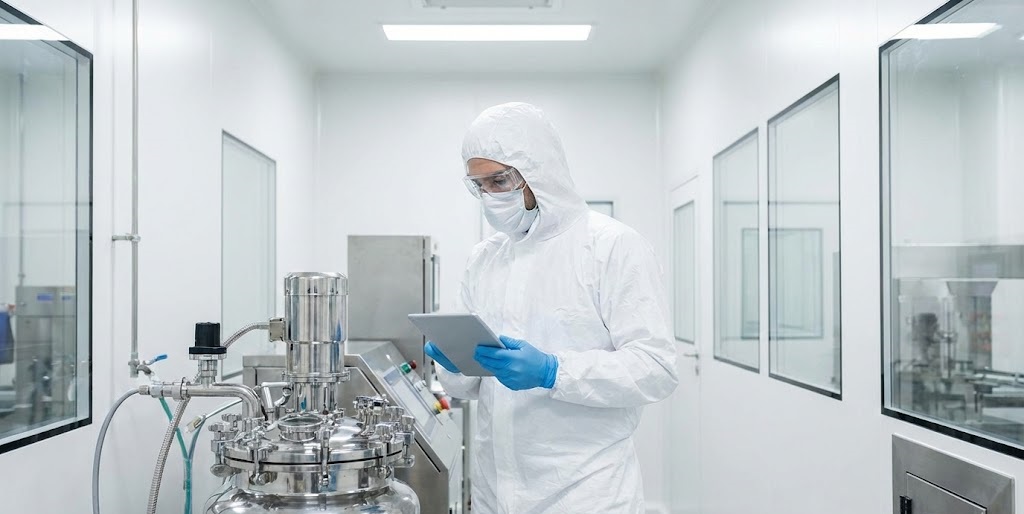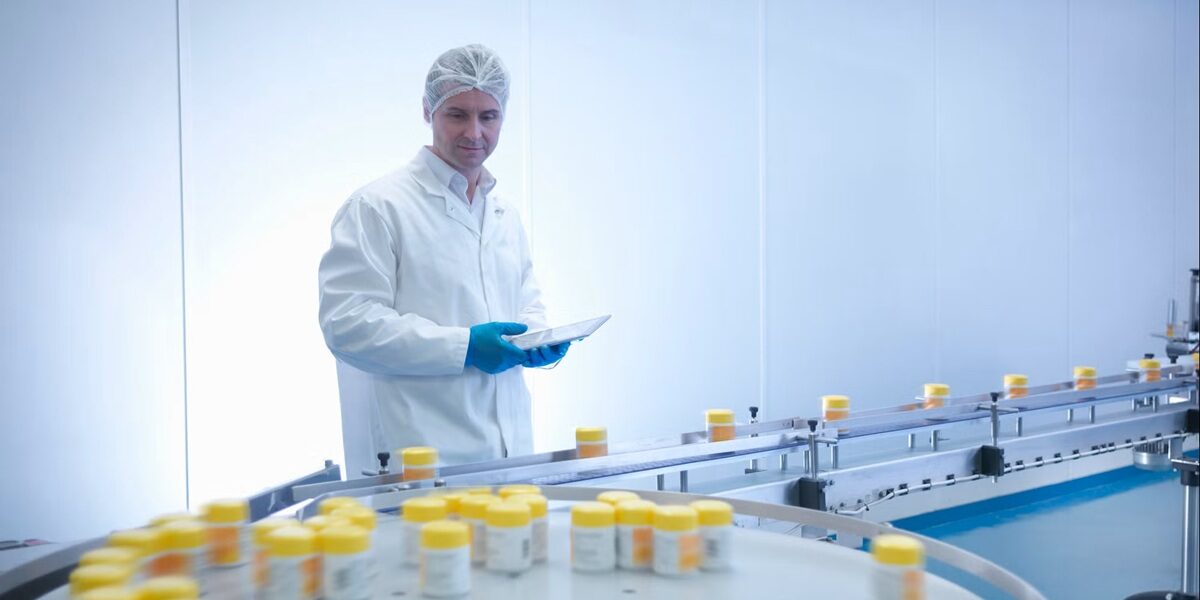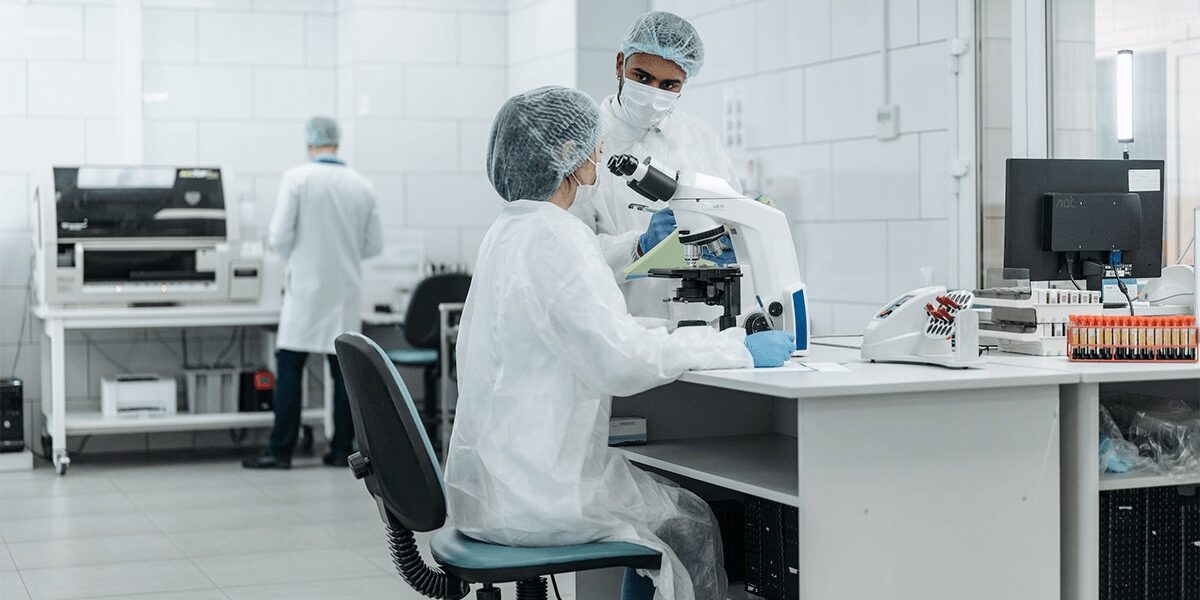A pharma hospital training certificate proves that pharmacy graduates handled real patients and medication workflows. It bridges classroom learning and hospital practice, often required or strongly recommended by employers. Programs usually run three to twelve months, depending on hospital rules and national standards.
This practical pharma certificate increases confidence and hiring chances in clinical settings for new graduates. For example, Indeed.com lists about 1,800 hospital clinical pharmacist jobs in the United States. It also reports certified pharmacy technicians earning roughly $22 per hour on average, based on thousands of salary entries from employers and professionals.
Table of Contents
What Is a Pharma Hospital Training Certificate?
A pharma hospital training certificate usually comes after graduation and focuses on structured hospital work. You join a supervised internship in a hospital pharmacy or clinical ward. Most programs last three to twelve months, depending on local rules. You apply classroom knowledge to real cases, patients, and medication workflows every shift.
This experience strengthens skills in dispensing, patient counseling, and regulatory compliance under pharmacist supervision. Indeed.com lists about 2,300 U.S. hospital pharmacist jobs, with roughly 14,000 annual pharmacist openings. This pharma certificate signals proven hospital readiness and helps you stand out in applications.
Direct work with real prescriptions and treatment plans
Daily mentoring from experienced hospital pharmacists
Hands-on practice with documentation, safety checks, and audits
Stronger hospital pharmacy job prospects
Who Needs Hospital Training and Why It Matters to Get That Certificate
Pharma internship after graduation mainly targets BPharm, DPharm, and MPharm graduates. They apply for a pharmacy practical training certificate through teaching hospitals or universities. Additionally, supervisors look for professionalism, punctuality, and strong basic clinical skills. This training usually lasts three to twelve months, depending on country regulations.
Hospital programs aim for safe practice and better employability in clinical roles. Trainees practice dispensing, documentation, and patient counseling during real shifts. Moreover, they learn guidelines and regulatory basics that employers value. U.S. data shows around 13,400 pharmacist openings yearly, many preferring hospital experience. This internship and certificate therefore help graduates stand out in competitive hiring.
Who needs hospital training?
BPharma and DPharma graduates gain stronger hospital readiness than peers who stay in retail.
MPharma graduates build deeper clinical insight compared with graduates who focus only on research.
Why the certificate matters
With a certificate, employers see proven clinical skills versus untested academic performance alone.
Certified graduates often secure interviews faster than applicants without structured hospital experience.

How to Obtain a Hospital Training Certificate
To get a hospital training certificate, you first register with an approved hospital or university. You submit BPharm, DPharm, or MPharm proof, ID, and sometimes vaccination records.
Additionally, structured pharma internships after graduation often last one to three months with mentoring. EAHP–EPSA data shows typical hospital placements run one to three months in Europe.
Moreover, pharmacist careers remain attractive, with about 14,200 job openings projected annually through 2034. Completing hospital training strengthens applications for licenses, residencies, and clinical jobs worldwide.
Step 1: Register with a recognized hospital or teaching institution
Step 2: Complete supervised practical hours
Step 3: Receive a certificate of completion
Step 1: Register with a recognized hospital or teaching institution
Step 1 starts when you register with a recognized hospital or teaching institution. You choose an accredited center that trains pharmacy graduates in real hospital settings. Additionally, check admission requirements and training duration before you apply. Prepare your degree, transcripts, ID, and vaccination records for registration.
Submit your documents online or in person as the hospital instructs. Moreover, respect deadlines, because many hospitals shortlist candidates quickly. Keep copies of every form and payment receipt for later checks. After you get acceptance, confirm your start date and ask about orientation plans.
* Gather required academic and identity documents
* Check accreditation status of chosen hospital
Step 2: Complete supervised practical hours (typically 1–3 months)
Step 2 covers supervised practical hours in a real hospital pharmacy. Most internships last one to three months after graduation. Additionally, European student reports show typical placements run 6–12 weeks in teaching hospitals.
You rotate through dispensing, ward rounds, and counseling tasks with pharmacist supervision. Moreover, global surveys report that 70–80% of interns feel more job-ready after structured hospital training.
Work daily under licensed pharmacist supervision
Rotate between inpatient and outpatient pharmacy units
Practice dispensing, counseling, and documentation
Attend clinical rounds with doctors and nurses
Log hours to qualify for hospital training certificate
Step 3: Receive a certificate of completion issued by the hospital or affiliated university
Step 3 means the hospital or university finally confirms your internship and issues an official completion certificate.
Moreover, one UAE program trained 53 interns in six months; all completed successfully and became eligible for the national licensing exam.
What Skills Are Learned During Hospital Training
Hospital training builds practical skills that you cannot get from lectures alone. You practice patient counseling, prescription auditing, and daily medication reviews with real cases. Additionally, one study found counseling training improved skills and confidence; 96.7% of students supported it.
You also learn pharmacovigilance and medication safety to protect patients from avoidable harm. WHO reports medication-related harm affects one in thirty patients in healthcare systems. Moreover, WHO estimates medication errors cost about 42 billion US dollars worldwide each year.
Training strengthens record management, including documentation of interventions and adverse reactions. A 2024 study showed intern pharmacists focused on counseling and developed positive attitudes. These competencies support safe hospital practice and help you stand out for clinical jobs. Overall, these skills support long-term hospital pharmacy careers.
Patient counseling
Prescription auditing
Pharmacovigilance
Medication safety
Record management
Alternative Career-Enhancing Programs Similar to Hospital Training Certificates
Hospital training helps you understand real clinical workflows and patient needs. However, you also need structured learning for broader career options beyond hospitals. Alternative programs, like Pharmuni’s online certificates, strengthen skills that employers measure closely. These programs complement a pharma hospital training certificate and keep your knowledge current.
Pharmuni offers more than 50 online courses designed for pharma careers. Additionally, you can follow six guided career paths for roles like QA or pharmacovigilance. You mix hospital experience with targeted theory, regulatory updates, and soft skill practice. This combination creates a powerful pharma certificate portfolio that shows long-term growth.
Moreover, these programs fit busy schedules because you study anytime from any device. You build patient counseling, documentation, and compliance skills without waiting for new rotations. Together, hospital training and Pharmuni upskilling prepare you for competitive global pharma jobs.
Final Words
A pharma hospital training certificate shows you practiced safely in real hospital settings with patients. EMA reports hospital error rates between 0.3% and 9.1%, so training strengthens safety skills. Additionally, its EudraVigilance system now holds over 27 million safety reports on suspected adverse reactions.
ICH began in 1990 and guides standards for quality, safety, and efficacy. Therefore, employers trust training aligned with EMA and ICH expectations. A pharma hospital training certificate plus targeted online certificates creates strong evidence of competence. Moreover, you future-proof your career when you explore pharma courses that build practical, regulator-ready skills.
FAQs
1️⃣ What is a Pharma Hospital Training Certificate?
A pharma hospital training certificate proves you completed supervised practice in a hospital pharmacy. It shows you worked with real patients, prescriptions, and clinical teams.
2️⃣ Who should apply for hospital training?
Fresh pharmacy graduates from BPharm, DPharm, or MPharm programs usually apply first. They want real-world experience before starting clinical, hospital, or regulatory jobs.
3️⃣ How long does hospital training usually take?
Most programs run from one to three months, depending on country and hospital rules. During this time, you complete set practical hours and log every activity.
References

Ershad Moradi, a Content Marketing Specialist at Zamann Pharma Support, brings 6 years of experience in the pharmaceutical industry. Specializing in pharmaceutical and medical technologies, Ershad is currently focused on expanding his knowledge in marketing and improving communication in the field. Outside of work, Ershad enjoys reading and attending industry related networks to stay up-to-date on the latest advancements. With a passion for continuous learning and growth, Ershad is always looking for new opportunities to enhance his skills and contribute to pharmaceutical industry. Connect with Ershad on Facebook for more information.

Revalidation In Pharma (2026 guide): Meaning, Triggers, Frequency, And Requalification Differences
Revalidation protects product quality and business continuity by linking GMP decisions to risk, evidence, and context. This article helps teams decide when to act, what to document, and how to classify issues consistently before audits and regulatory inspections.

GMP Regulations in 2026: How Inspectors Assess Compliance and Control Systems
This article explains how pharmaceutical regulatory requirements shape inspection decisions, why GMP compliance gaps persist across manufacturing sites, and which operational controls, documentation practices, and risk-based measures support inspection readiness under global GMP standards.

WHO GMP in 2026: Inspection Readiness and Compliance Expectations
This article explains how global pharmaceutical GMP standards are applied during inspections, why operational gaps persist despite formal compliance, and how quality systems, contamination control, and risk-based execution shape regulatory inspection readiness across manufacturing operations.


